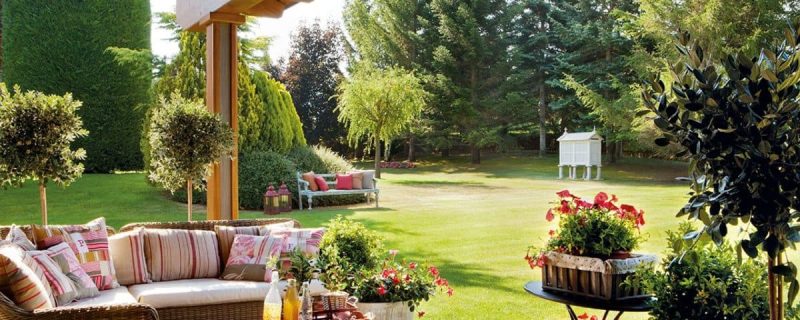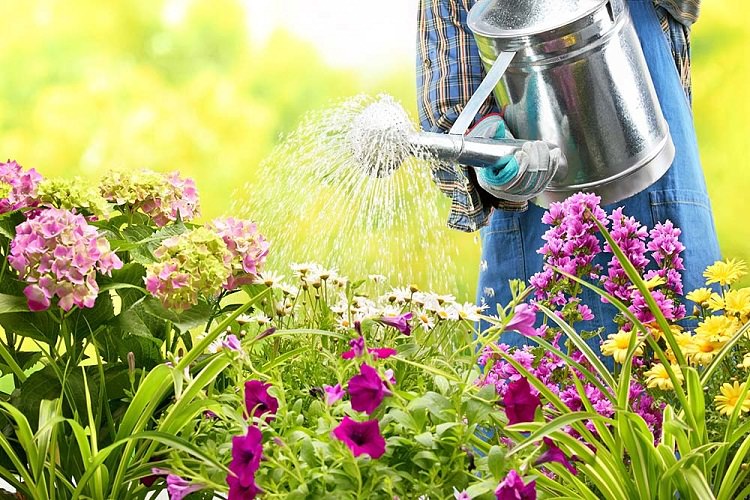
A healthy garden results in healthy crops that are disease-free. In case your garden starts getting unhealthy, you risk diseases and pests affecting your crops. This happens through the crop disease life cycle whereby a plant gets sick from an attack by a pathogen like a virus, bacteria, or fungus. The attack on the plant is aggregated by favorable conditions such as high humidity or lack thereof. This will, in turn, lead to a reduction in the yields. This means that in order to maintain a disease-free garden you need to keep it healthy. Here are 10 ways to keep your garden healthy.
1. Choose an appropriate location for the garden and appropriate plants for the location
The first step towards a healthy garden begins with the choice of location. When deciding on the location of the garden it is important to determine the type of soil and the environment around it. It is preferred to have a garden where there is the least disturbance. You should consider fencing the garden if its location is in a place where there is a high likelihood of disturbance.
Furthermore, when choosing the location of the garden you should bear in mind the type of crops that will be planted. This means that you need to plan effectively before setting up a garden.
2. Soil management
The soil of a garden is an important factor in determining the health of the garden. In order to maintain healthy soil in your garden, you should turn your soil at least once a month to keep it light and loose. In case you have clay soil, top it up with compost manure to keep the soil loose.
3. Examine all plants when buying
Before getting any seedlings into your garden, ensure to check them thoroughly for pests and diseases. This is the best way to ensure that no disease gets to your garden. Before getting new plants into your garden, I would suggest that you try to read more on pests and diseases. You could also ask an expert for their opinion on the best practices.
4. Clean up leaf and branches that fall off
Over time, branches and leaves from plants tend to dry and fall off. As a result, the garden may end up with a lot of fallen leaves and twigs. It is recommended that you clean the garden from leaf falls as it is a measure to control the spread of pests and diseases.
5. Undertake pruning in time
It is also advisable to trim trees and shrubs, especially in late winter. This is especially important in the control of diseases and also giving space to the growth of new plant parts. When plants are pruned in time then they will develop healthy tissues resulting in a healthy garden.
You should also consider mowing the lawn around the garden. There are various options such as lawnmowers and lawn edgers. You can check out the best lawn edgers on https://www.cozydownhome.com/best-lawn-edger. You should also prune the surrounding vegetation such as live fences.
Also Read: 18 Tropical and Natural Outdoor Shower Ideas
6. Undertake irrigation properly

Whenever there is less moisture, you should undertake watering to avoid withering of plants, especially in summer. It is important that the plants are watered with caution to avoid disease spread. I would advise that you use an irrigation method that limits moisture access to the plant foliage.
7. Embrace Mulching
During the dry season, it is advisable to undertake mulching to help the soil hold on to moisture. Furthermore, mulching suffocates weeds thereby having a weed-free garden. Mulching will also become manure, in the long run, improving the soil composition and fertility level. Caution should, however, be taken when mulching as it could lead to a harbor for diseases.
8. Undertake proper spacing of crops
The spacing of crops is a healthy practice that will ensure that your crops grow healthy. However, most gardens are smaller and as a result, it is always a challenge to determine if to plant more plants with less space or fewer plants with more space. In my opinion, considering that the garden is small, you should have more plants but with considerable space between them. You don’t have to follow strict spacing as prescribed. However, the spacing must be sensible.
9. Apply fertilizer and compost manure correctly
In order to have a healthy garden, you need it to be fertile. You should use less fertilizer and only use it when required. Instead, I suggest you use manure. For the case of manure, ensure that it is ready before applying it to your garden. Manure that is not ready could carry with its pests and diseases.
Also Read: 35 Lovely And Inspiring Small Balcony Ideas
10. Undertake regular weeding and pest control
It is important to undertake regular weeding to deal with weeds as they compete for nutrients with crops. Use the most sustainable and effective weeding methods such as uprooting of young weeds and mulching. You should also take care of pests through healthy methods. I suggest alternatives methods as opposed to pesticides. You can undertake crop rotation on your garden to naturally deal with the problem of pests and diseases.
Conclusion
A healthy garden is a healthy lifestyle and you should desire to have a healthy garden. A healthy garden has fewer pests and diseases to deal with. This will translate into healthy yields and happy life. Therefore, undertake the above-mentioned practices to improve the health of your garden.